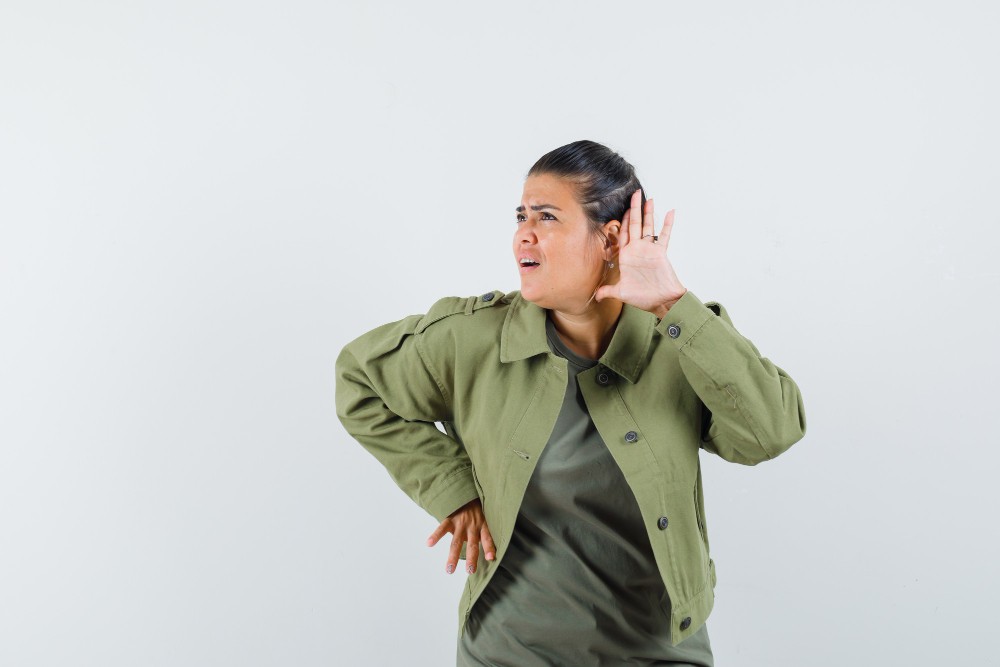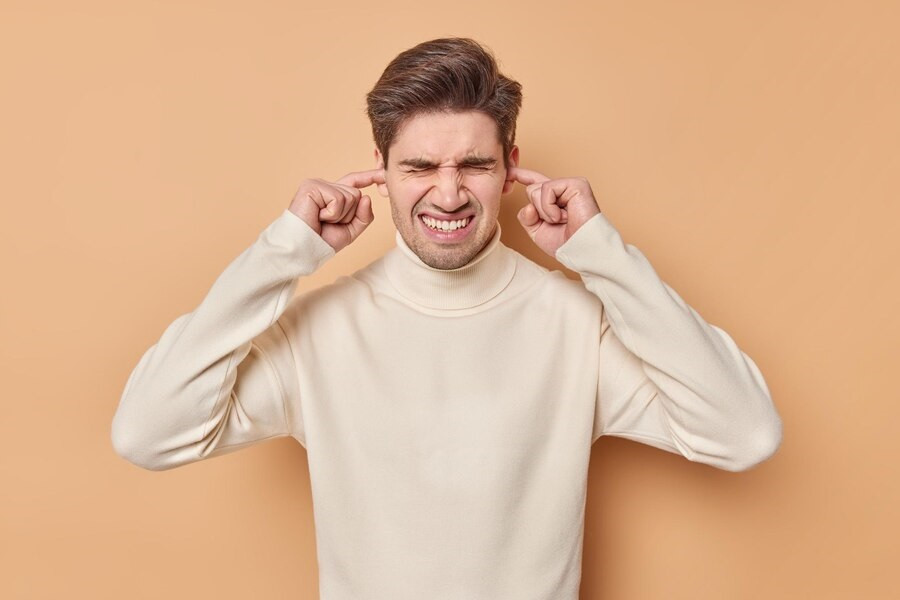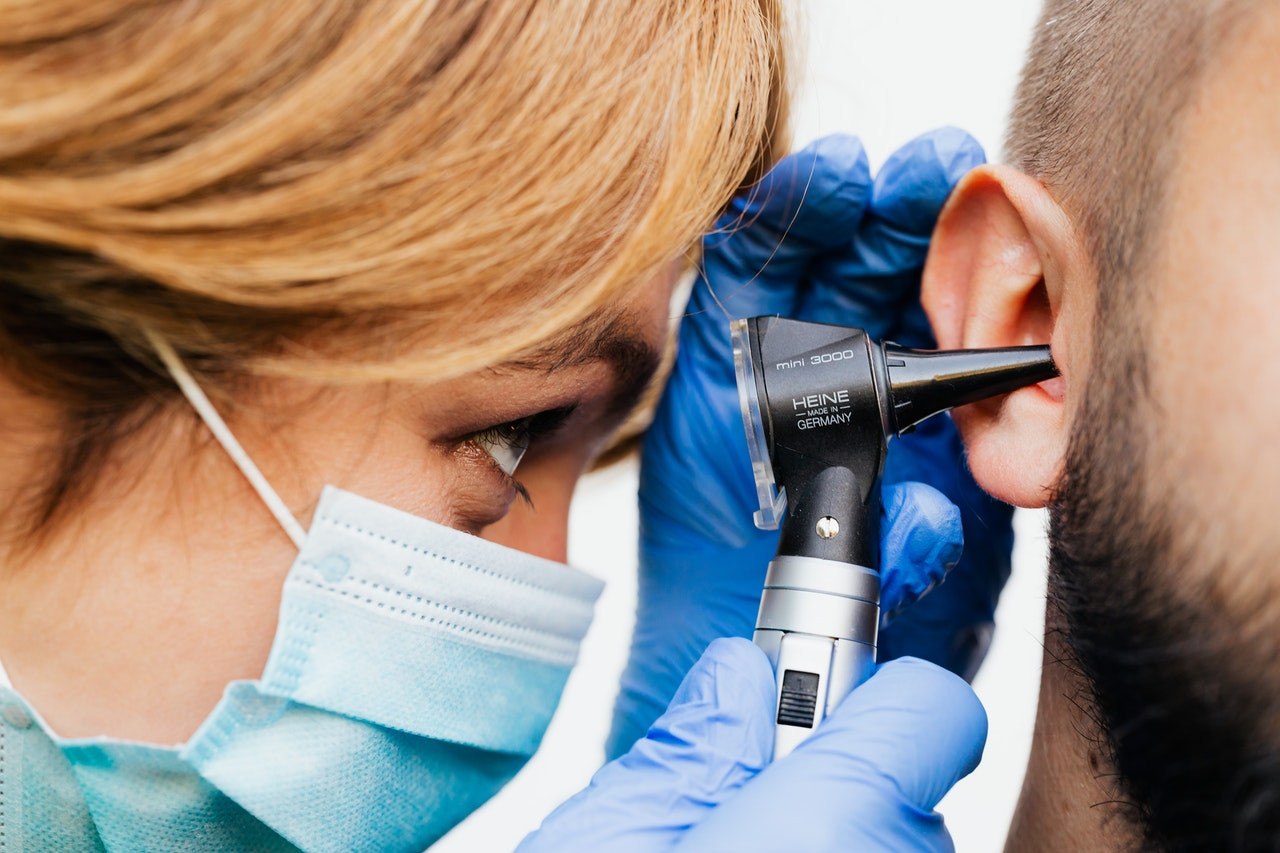Tinnitus atau telinga berdenging dapat terjadi di salah satu atau kedua telinga. Kondisi ini bisa disebabkan oleh banyak hal, baik kondisi ringan maupun serius. Simak artikel berikut untuk mengetahui penyebab dan cara mengatasi tinnitus di salah satu sisi telinga.
Penyebab Telinga Berdenging Sebelah
Tinnitus atau telinga berdenging adalah kondisi dimana Anda mendengar suara denging di telinga Anda. Suara denging yang Anda dengar tidak dapat didengarkan oleh orang lain. Denging yang dapat muncul di antaranya suara berdenyut, berdengung, atau berdesing. Suara yang Anda dengarkan bisa bervariasi, mulai dari suara lembut atau keras yang dapat mengganggu aktivitas sehari-hari.
Tinnitus bukanlah suatu penyakit, melainkan gejala dari beberapa kondisi kesehatan seperti cedera telinga atau kehilangan pendengaran terkait usia. Kondisi ini bisa terjadi pada salah satu atau kedua telinga. Jika telinga berdenging hanya terjadi pada satu telinga, kondisi ini dikenal dengan istilah unilateral tinnitus.
Beberapa penyebab telinga berdenging sebelah antara lain:
Penumpukan kotoran telinga
Telinga secara alami mengeluarkan serumen atau zat lilin yang berfungsi melindungi telinga dari debu, kuman, dan benda asing. Serumen inilah yang sering disebut sebagai kotoran telinga. Ketika kotoran telinga ini mengering atau memadat di telinga, hal ini bisa menyebabkan telinga berdenging. Biasanya hal ini terjadi ketika Anda mendorong kotoran telinga terlalu dalam.
Baca Juga: Ragam Penyebab Tinnitus (Telinga Berdenging)
Trauma akustik
Trauma akustik adalah kondisi ketika gendang telinga terluka akibat paparan suara keras. Anda bisa mengalami hal ini jika sering terpapar suara bising seperti di pabrik atau konser.
Kolesteatoma
Kolesteatoma adalah tumbuhnya tumor jinak di belakang gendang telinga. Kondisi ini bisa terjadi akibat bawaan lahir yang berkembang seiring waktu atau akibat infeksi.
Otosklerosis
Otosklerosis adalah terjadinya pengerasan tulang abnormal pada bagian telinga tengah atau dalam. Kondisi tulang pada bagian telinga tengah dapat berubah seiring berjalannya waktu akibat cedera, infeksi, atau kehamilan.
Otitis media kronis
Otitis media kronis adalah kondisi di mana cairan terperangkap di telinga tengah dan keluar secara terus-menerus. Keberadaan cairan ini dapat menyebabkan kerusakan pada gendang telinga serta meningkatkan risiko infeksi berulang.
Gendang telinga pecah
Tinnitus pada satu telinga dapat terjadi akibat infeksi telinga atau trauma yang menyebabkan pecahnya gendang telinga.
Penyakit Meniere
Penyakit Meniere adalah masalah telinga bagian dalam yang dapat menyebabkan vertigo dan gangguan pendengaran. Belum diketahui penyebab penyakit Meniere, namun hal ini diduga dapat disebabkan oleh kondisi autoimun, alergi, infeksi, drainase cairan yang buruk, dan faktor genetika.
Tumor otak
Tumor otak dapat meningkatkan tekanan di kepala dan telinga, sehingga menyebabkan telinga berdenging.
Baca Juga: Cara Mengatasi Tinnitus (Telinga Berdenging)
Penanganan Telinga Berdenging Sebelah
Penanganan tinnitus dapat bervariasi, tergantung penyebab dan keparahan yang dialami. Beberapa penanganan yang bisa dilakukan untuk telinga berdenging sebelah antara lain:
- Perawatan medis, seperti penggunaan tetes telinga, pemberian antibiotik, obat vertigo, antidepresan, atau operasi.
- Pengobatan rumahan, seperti irigasi telinga, relaksasi untuk meredakan stres, mendengarkan musik atau white noise.
- Menggunakan alat bantu dengar.
- Terapi kognitif dan konseling.
Telinga berdenging sebelah dapat mengindikasikan masalah kesehatan lainnya yang serius. Jika Anda memiliki masalah telinga sebaiknya periksakan ke dokter atau manfaatkan fitur konsultasi pada aplikasi Ai Care yang bisa diunduh melalui App Store atau Play Store.
Mau tahu informasi seputar penyakit lainya? Cek di sini, yah!
- dr Nadia Opmalina
Geng, C. (2023). What to know about tinnitus in one ear. Available from: https://www.medicalnewstoday.com/articles/tinnitus-in-one-ear#
Jewell, T. (2024). What Can Cause Tinnitus in One Ear?. Available from: https://www.healthline.com/health/tinnitus-in-one-ear
Cleveland Clinic. Tinnitus. Available from: https://my.clevelandclinic.org/health/symptoms/14164-tinnitus
Koprowski, B. (2023). What to know about pulsatile tinnitus in only one ear. Available from: https://www.medicalnewstoday.com/articles/pulsatile-tinnitus-in-one-ear-only
Mayo Clinic. Meniere's disease. Available from: https://www.mayoclinic.org/diseases-conditions/menieres-disease/symptoms-causes/syc-20374910












